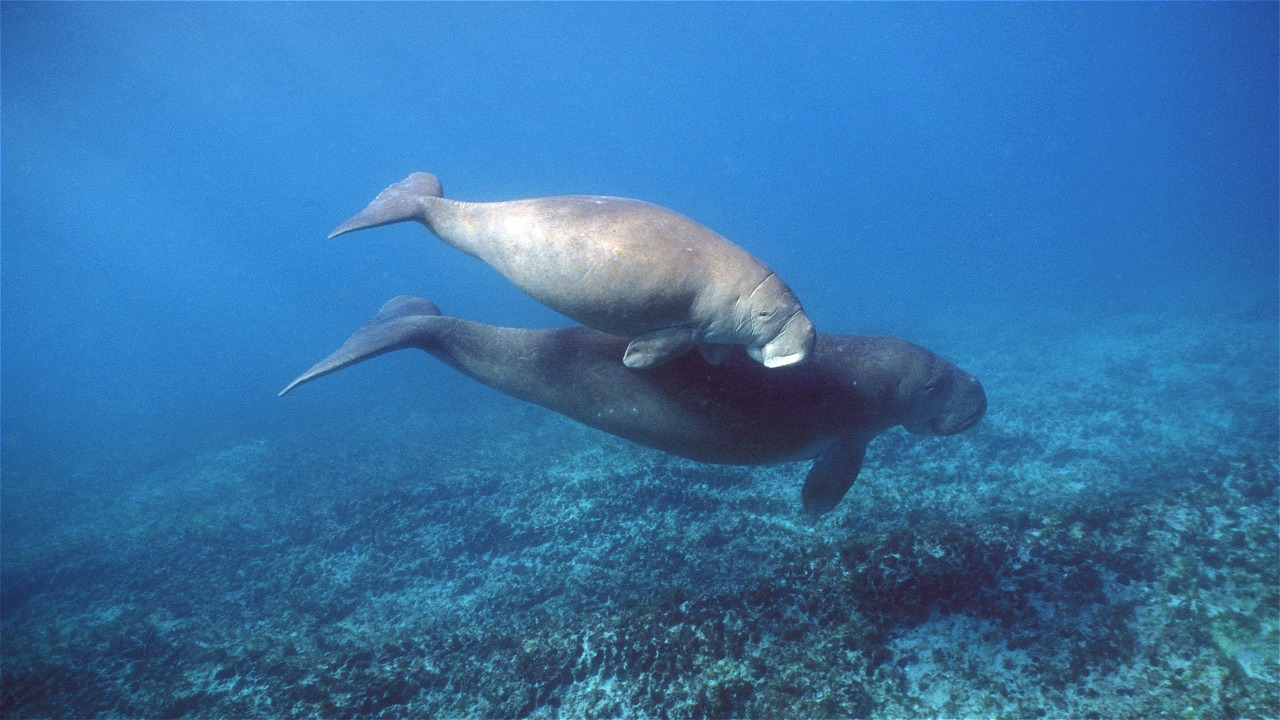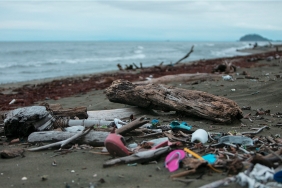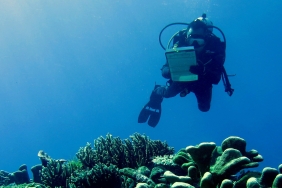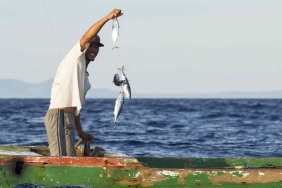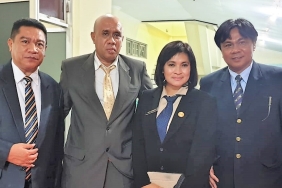DSCP INDONESIA PREPARES DUGONG AND SEAGRASS MONITORING TEAM
By: Casandra Tania (Marine Species Officer)
Due to several cases of dugong stranding and capture in Indonesia, which reached 8 incidents in the past year, DSCP (Dugong and Seagrass Conservation Project) Indonesia held a training on survey and monitoring methods for dugong and seagrass habitat. 100 participants from government, NGOs, academics, practitioners and dugong conservationists will receive training in Jakarta on January 30 - February 1, 2017 and in Tolitoli, Central Sulawesi, on February 3 - 5, 2017.
Currently, dugong experts and dugong and seagrass conservation activists in Indonesia are still very minimal, which also has an impact on the lack of data and information related to dugong and seagrass and their conservation efforts. Therefore, the presence of dugong conservation activists and dugong experts in Indonesia needs to be strengthened. In order for dugong and seagrass data to be collected as a national database, standardized data collection methods will help collect data that can be compared, both at the national and international levels.
Indonesian researchers and academics from the Indonesian Institute of Sciences (LIPI), Marine and Fisheries Research and Development Agency, Bogor Agricultural University, Makassar Coastal and Marine Resources Management Center, and WWF-Indonesia will join world-renowned researchers as presenters in this training, such as prof. Hans de Iongh from Leiden University-Dutch, Kotaro Ichikawa from Kyoto University-Japan, Nicholas Pilcher from Marine Research Foundation-Malaysia, Irendra Radjawali from Bonn University-Germany, and Christophe Cleguer from James Cook University-Australia.
Dugong (Dugong dugon)or dugong is one of 35 marine mammals found throughout Indonesian waters, and has been designated as one of 20 priority target species for conservation. These mammals, which measure up to 3 meters in length, feed on seagrass and play an important role in the marine ecosystem. Based on data obtained from the Dugong and Seagrass Symposium in April, it is known that there are 24 Dugong distribution locations in Indonesia.
Wawan Ridwan, WWF-Indonesia's Coral Triangle Director, stated, "Dugong is a protected marine mammal that controls the health of seagrass ecosystems. Preserving dugong and seagrass beds means maintaining the economic sustainability of seagrass beds." A variety of valuable fishery commodities such as sea cucumber, baronang, and king crab live in seagrass ecosystems.
In this opportunity, participants will receive various trainings, including for community-based monitoring and handling of stranded marine mammals, aerial surveys, acoustic surveys and GIS data analysis and database management. Data and information related to dugong and seagrass are needed to produce targeted management and protection policies. All of this is expected to support the implementation of the National Action Plan (NAP) for Dugong and Seagrass Conservation that has been developed together.
-o0o-
Note to Editor:
- Nationally, the dugong has also been protected through Law No.5 of 1990 and Government Regulation No. 7 of 1999. While internationally dugong is included in the IUCN (the International Union on Conservation of Nature) Red List as an animal that is "vulnerable to extinction", as well as included in Appendix I of CITES (the Convention on International Trade in Endangered Species of Wild Fauna and Flora) which means dugong cannot be traded in any form.
- Presentation materials and photos related to the Dugong and Seagrass Survey and Monitoring Methods Training can be downloaded via the link http://bit.ly/fotodscp2017
About DSCP-Indonesia
Dugong and Seagrass Conservation Project Indonesia - (DSCP Indonesia) is a project that aims to improve the conservation of dugong (Dugong dugon) and seagrass ecosystems in Indonesia. DSCP Indonesia is a collaboration of 4 (four) institutions namely KKP, LIPI, IPB and WWF Indonesia with grant support from the Global Environment Facility (GEF) initiated with the United Nation Environment Programme - Convention on the Conservation of Migratory Species (UNEP-CMS) in collaboration with the Mohammed bin Zayed Species Conservation Fund (MbZ). The project is part of a coordinated global effort to conserve dugongs and seagrass beds in eight countries in the Indo-Pacific region, namely Indonesia, Madagascar, Malaysia, Mozambique, Solomon Islands, Sri Lanka, Timor-Leste and Vanuatu. The main thrust of the project is to increase community participation and ownership of dugong and seagrass conservation, with a focus on introducing sustainable fisheries practices and innovative financial incentives, establishing Regional Marine Protected Areas (MPAs), and promoting dugong and seagrass conservation as a priority in national and sub-national policies and planning.

